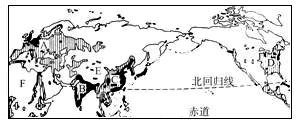Where is love How can we find love
The past ages of man have all been carefully labeled by anthropologists. Descriptions like "Paleolithic Man", "Neolithic. Man", etc. , neatly sum up the whole periods. When the time comes for anthropologists to turn their attention to the twentieth century, they will surely choose the label "Legless Man". Histories of the time will go something like this: "in the twentieth century, people forgot how to use their legs. Men and women moved about in cars, buses and trains from a very early age. There were lifts and escalators in all large buildings to prevent people from walking. This situation was forced upon earth dwellers of that time because of miles each day. But the surprising thing is that they didn’t use their legs even when they went on holiday. They built cable railways, ski lifts and roads to the top of every huge mountain. All the beauty spots on earth were marred by the presence of large car parks. "
The future history books might also record that we were deprived of the use of our eyes. In our hurry to get from one place to another, we failed to see anything on the way. Air travel gives you a bird’s eye view of the world—or even less if the wing of the aircraft happens to get in your way. When you travel by car or train a blurred image of the countryside constantly smears the windows. Car drivers, in particular, are forever obsessed with the urge to go on and on: they never want to stop. Is it the lure of the great motorways, or what And as for sea travel, it hardly deserves mention. It is perfectly summed up in the words of the old song: "I joined the navy to see the world, and what did I see I saw the sea." The typical twentieth century traveler is the man who always says, "I’ve been there. " You mention the remotest, most evocative place names in the world like El Dorado, Kabul, Irkutsk and someone is bound to say, "I’ve been there"—meaning, "I drove through it at 100 miles an hour on the way to somewhere else. "
When you travel at high speed, the present means nothing: you live mainly in the future because you spend most of your time looking forward to arriving at some other place. But actual arrival, when it is achieved, is meaningless. You want to move on again. By traveling like this, you suspend all experience; the present ceases to be a reality: you might just as well be dead. The traveler on toot, on the other hand, lives constantly in the present. For him traveling and arriving are one and the same thing: he arrives somewhere with every step he makes. He experiences the present moment with his eyes, his ears and the whole of his body. At the end of his journey he feels a delicious physical weariness. He knows that sound. Satisfying sleep will be his: the just reward of all true travelers.
Why does the author say "we are deprived of the use of our eyes" ()
A.People won’t use their eyes.
B.In traveling at high speed, eyes become useless.
C.People can’t see anything on their way of travel.
D.People want to sleep during travelling.


